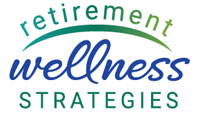 I have had several clients who have interpreted the medical condition hypertension as ‘high tension’. They thought this was a condition related to stress. And then, several thought the condition was only present when they were feeling stressed.
I have had several clients who have interpreted the medical condition hypertension as ‘high tension’. They thought this was a condition related to stress. And then, several thought the condition was only present when they were feeling stressed.
How much stress is there in your life right now? How much stress is there in the world? Some of us feel stressed much of the time. Others take a laid back approach to life and rarely feel stress.
Is it true that the stressed people have hypertension and the laid back people don’t?
NO
Hypertension (also known as high blood pressure) is a medical condition that goes way beyond stress or tension. It is a complex condition that is related to our genes (which we can’t control), our environment (some of which we can control), our behaviors (which we CAN control), and likely other factors that are still to be discovered.
Because it is such a complex condition with so many systems in the body involved, there are many medications that are used to treat it. Each category, or type, of medicaion treats hypertension in a different way. So, for some people, hypertension can be controlled with one medication. For other people, it could take two, three, four, or more medications, each acting on a different aspect of the condition.
How high is too high? The very general answer is a blood pressure over 140/90 is too high based on current guidelines. If someone has a history of heart disease or diabetes or some other conditions, your doctor might give you a lower goal such as less than 130/80.
How low is too low? Too low is not a strict number. Rather, it is more related to symptoms. If you feel dizzy when you stand or turn, have seen a marked decrease in your energy since starting your hypertension medicine, or are having trouble catching your breath, talk with your doctor.
Blood pressure that gets too high can be dangerous. It can lead to a myocardial infarction (heart attack) or stroke.
So what can you do about hypertension if you have it?
Check back next week for a ‘prescription’ for lowering and controlling your blood pressure.
For more information, contact us at www.medsmash.com.
For further application, check out my personal blog.
-Michelle Fritsch
Image Source: National Heart, Lung, and Blood Institute; National Institutes of Health; U.S. Department of Health and Human Services
